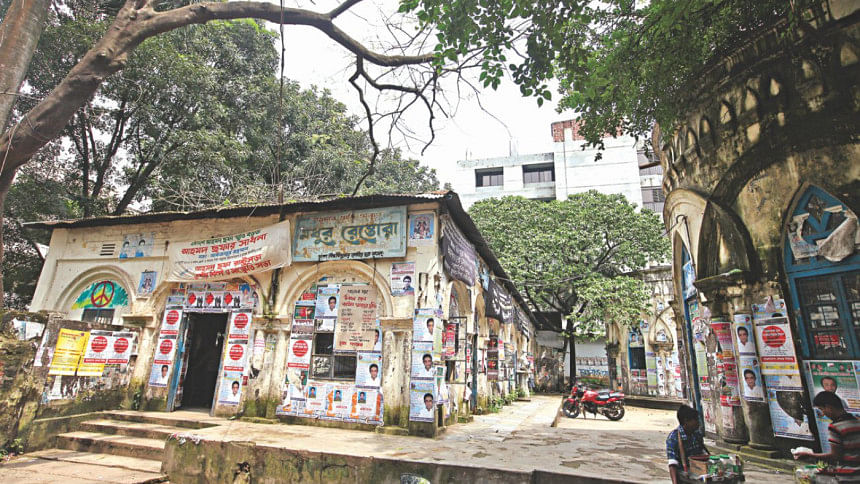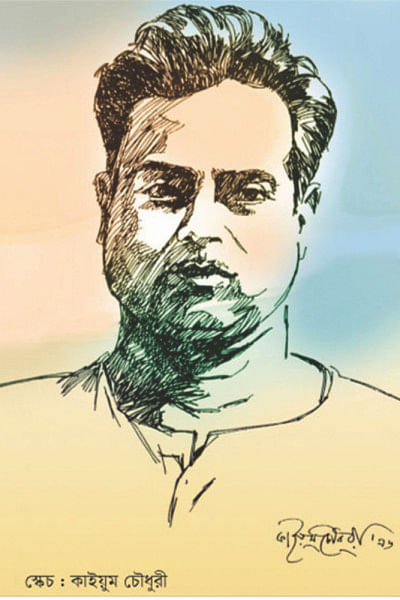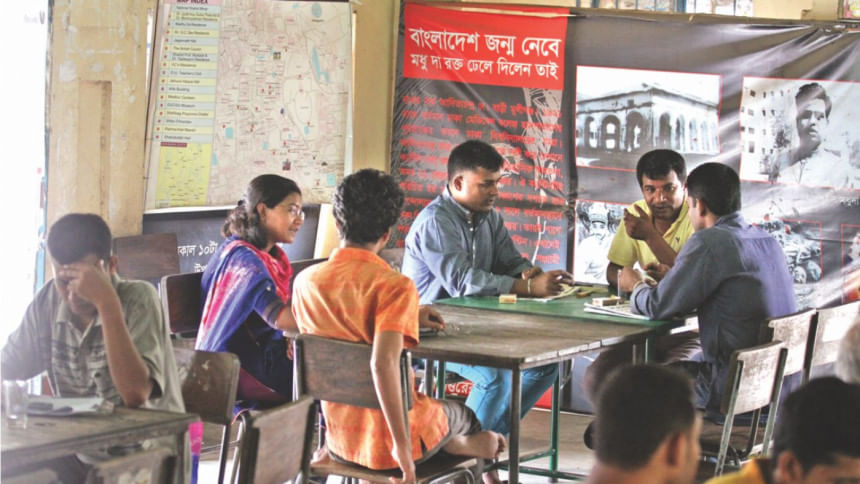A Historic Dialogue with Modhu Da


From 1952 to 1971, our country bore its share of rebellion and the sadness that came with it. Throughout this time Dhaka University was the focal point of the movement. From Aam Tola, TSC to Dakshu Canteen, every place had its own share of history. One of the most prominent hubs was the famous Modhur Canteen, popularly known for holding major political meetings.
In 1971, East Pakistan Students' Union (DU Wing) decided to publish a compilation of writings, committing to the memory of the 1952 language movement. The compilation was named "Eto Bidroho Kokhono Dekheni Keo". Media analyst and talk show host Muhammad Jahangir was then working as the Dhaka University correspondent for Dainik Pakistan, a leading Bangla daily of that time. "While planning for the compilation, I had an idea of interviewing the illustrious Madhu Da of Madhur Canteen," says Muhammad Jahangir. "To me he was the best witness to what happened that day and let's not forget he was also a prominent personality regarding these movements." Though Modhusudhan Dutta (Modhu Da) was never involved in the movements, he was a common name regarding these actions as his canteen was where all was planned.
Using a pseudonym, Abul Abbas, Muhammad Jahangir published his interview with Modhu da with the title "Modhu Dar Sathe Kichukhon." In it, he wrote,
'February 21, 1952 . From the meeting at the Dhaka University Aam Tola, to the road march; everything and anything that happened that day had a common associate, and that was Modhu Da.
The conversation with him took a turn to the historical event that took place eighteen years ago. He witnessed every bit of the tragedy and even after all these years, Modhu da still bares that sadness. I asked him to tell the tale of that day. What he saw and how he felt. The question took him by surprise and he answered with a half smile, the smile which everyone was familiar with. He said, "That was a long time ago. My memories are quite vague." I again requested him to recall the day. Modhu Da stared at a distance, as if he was witnessing the past all over again. After a while he suddenly spoke, "Borkat was just having tea in my canteen before leaving for the march. After I heard he got shot, I wanted to see his body. But I couldn't. A lot of police were surrounding the body." I wondered how lucky he was to witness all of this.'

Muhammad Jahangir's writing remains a historical document, in a very poetic sense. A lot of stories have been written about Modhu da, but he was the only one to signify the language movement through Modhu Da's eyes. In his article he also wrote,
'I wanted to know if Modhu Da can recall other faces of that movement, activists who once mesmerised others by their speeches. He brought to mind a lot of them. Oly Ahad, Abdul Matin, Mohammad Toha, Gajiul Haque, a lot of who were regulars in his canteen. They still give a warm welcome when they meet.
Whenever Modhu Da goes to the university grounds, he stops in front of the Shahid Minar, remembering little fragments of that day. He still cannot forget the face of Borkat. He still tries to find that innocent face in the crowd of his canteen.'
This interview was taken in the month of February, in 1971. In the same year on March 25, Modhusudhan Dutta, with a couple of his family members, was killed by the Pakistani Army.

 For all latest news, follow The Daily Star's Google News channel.
For all latest news, follow The Daily Star's Google News channel. 



Comments